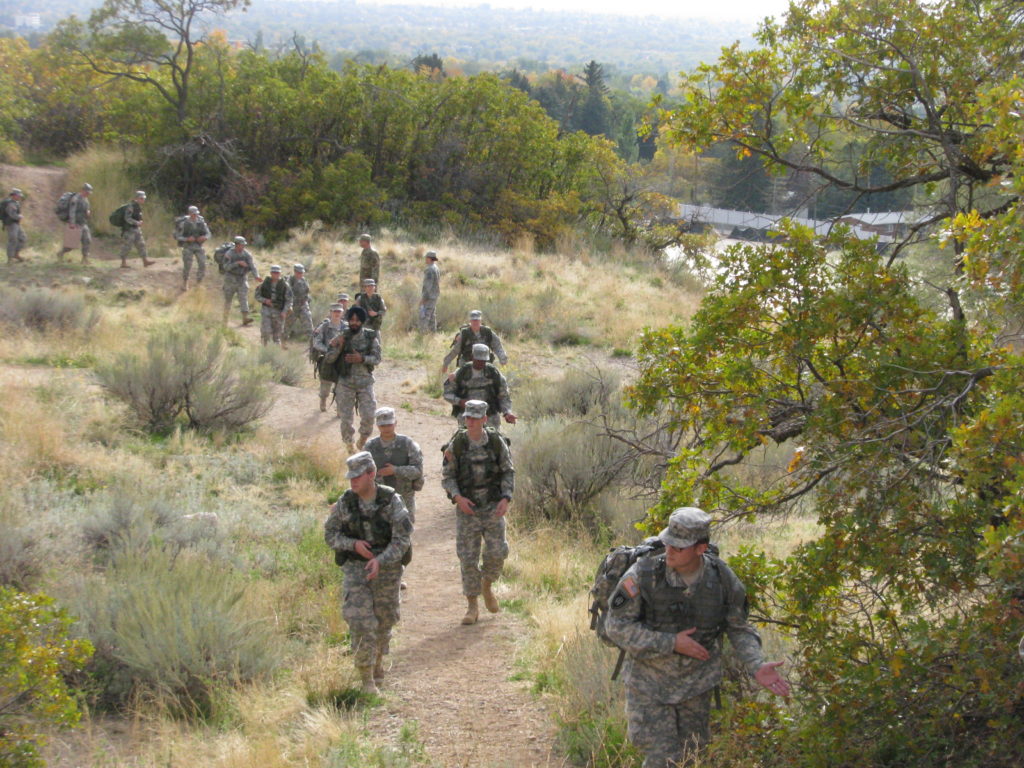
Weber State University is home to the Wildcat Battalion, an ROTC unit with a history of service reaching back to 1971, and includes one former cadet, Brian M. Thacker, who is a Medal of Honor recipient from the Vietnam era.
One year ago, the WSU ROTC was selected to organize, manage and support the 10th Annual Task Force White Mountain 5th Brigade ‘Ranger Challenge’ in Utah.
“Ranger Challenge takes ROTC cadets and transforms them physically and mentally to be the leaders of tomorrow,” Sergeant Josh Curtis, a WSU ROTC coach said.
ROTC cadets and cadre from three states and ten universities came together on Oct. 14 and 15, at Camp Williams, Utah, to compete in a series of exercises designed to test their military skills. Each school was responsible for designing, setting-up and managing a portion of the exercises.
Following the completion of the 2015 Ranger Challenge, and at the request of the Wildcats’ Professor of Military Science LTC Jason Nierman, responsibility for the 2016 Ranger Challenge was assigned to WSU.
Nierman says that he wanted WSU to host the event in 2016, and he selected Captain Stephen Feehan of the Wildcats Battalion to design the 2016 Challenge and make the plans and arrangements to carry out a successful program.
“One of the greatest achievements in any competition is completing your goals,” Feehan said. “During the 2016 Ranger Challenge Competition, the team from Weber State University made a plan, executed that plan to the best of their abilities, and came out ahead of what they set for themselves.”
On the afternoon of Oct. 14, cadet teams arrived at Camp Williams and checked into their barracks. The opening event was held that afternoon and consisted of a rigorous physical training series of sit-ups and push-ups, supervised by WSU Cadre.
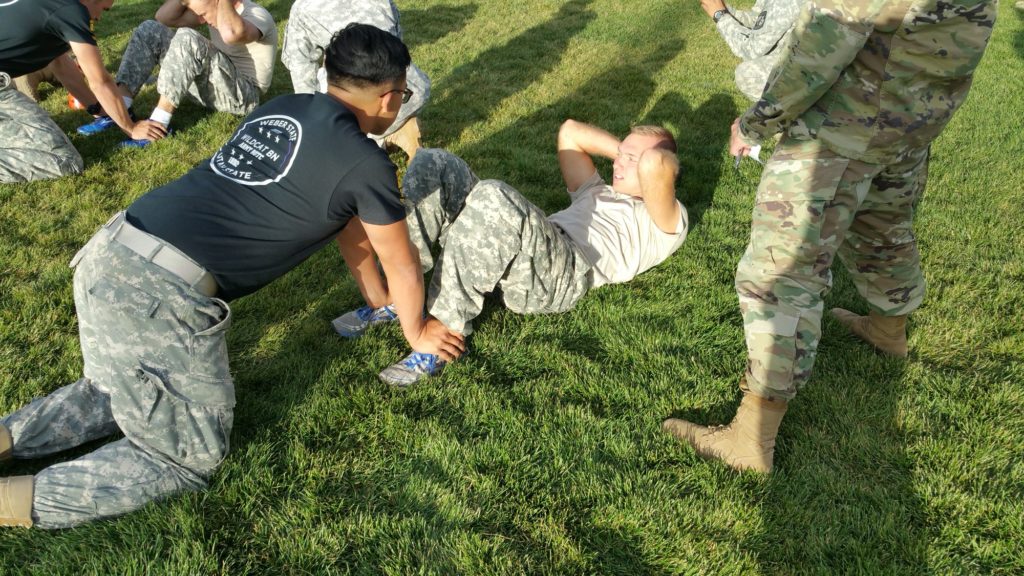
The next morning the group of 176 cadets and 40 cadres were up and out at 3:00 a.m. for the beginning of a full-day of military exercises, beginning with a 6.2 mile road march and land navigation exercise with full equipment, including a 35-pound rucksack.
Along the way, each team was required to demonstrate their land navigation skills by collecting assigned items along the route.
Each team also rotated through eight additional military maneuvers, displaying their skills.
The Leadership Reaction Course involved solving a series of challenges that each team was required to negotiate within a set time. The team that completed all five obstacles within the shortest time was considered the winner of this event.
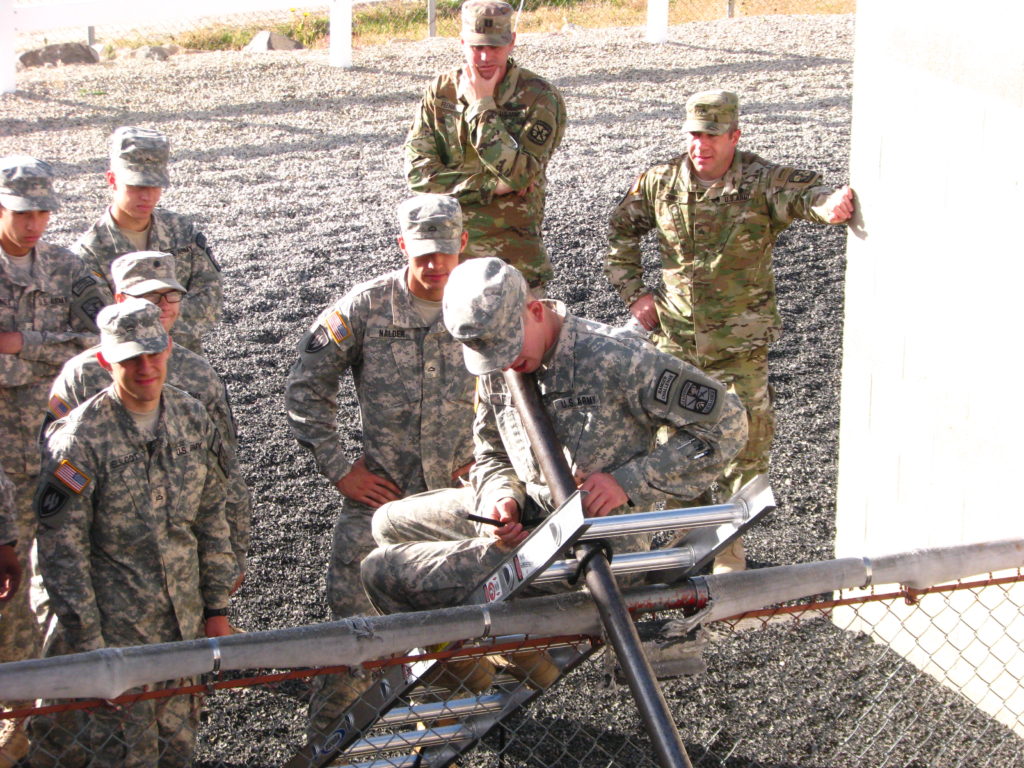
Teams were required to assemble and negotiate a one-rope bridge to simulate crossing a river or similar obstacle. All members of the team had to navigate the bridge along with their gear and equipment.
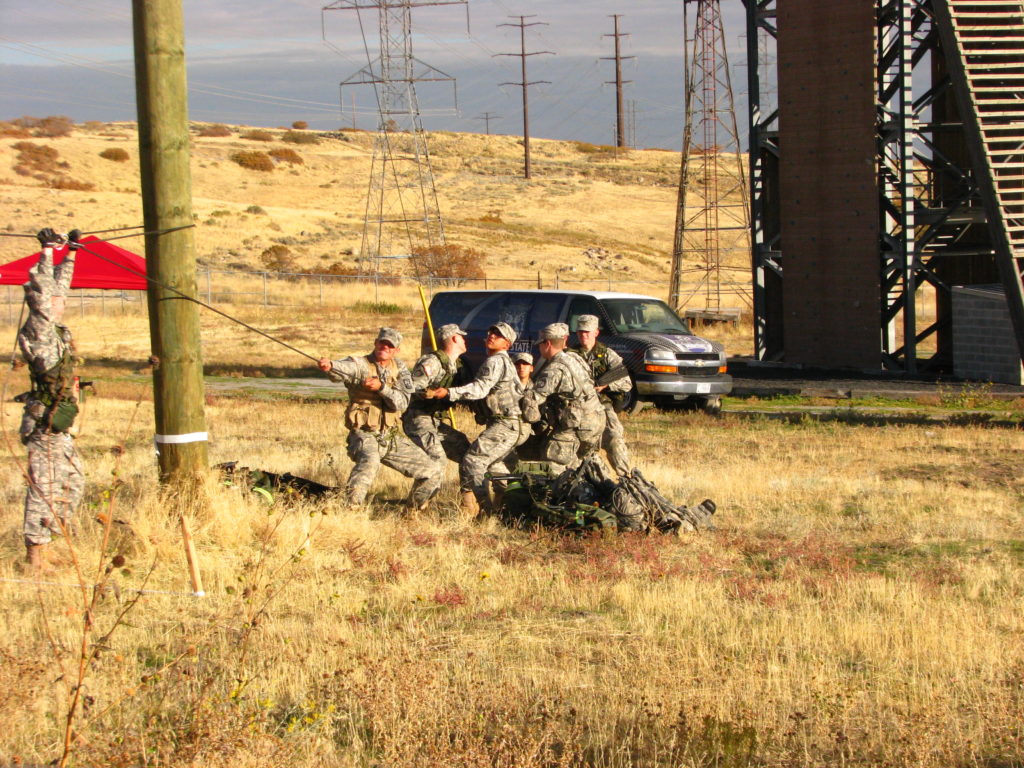
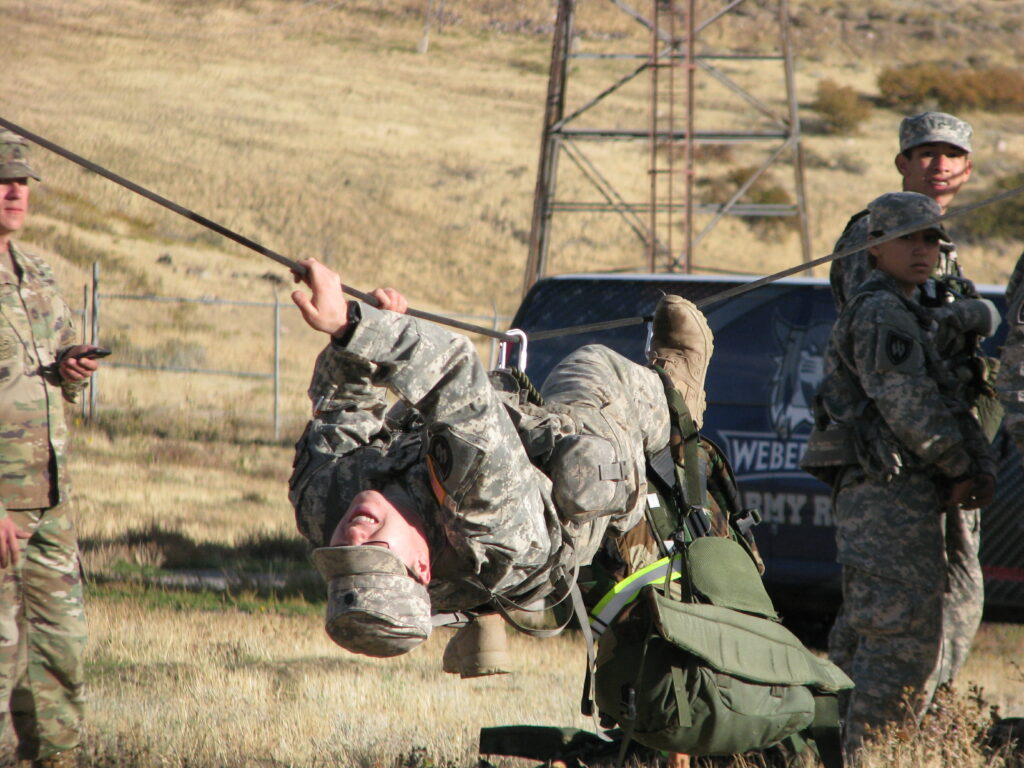
Teams were also required to demonstrate weapons knowledge and combat marksmanship skills on the Combat Marksmanship range with an M4 rifle and a M9 handgun.
In preparation for shooting on the range, each cadet was required to perform a physical training event to raise their heart rates to simulate combat circumstances.
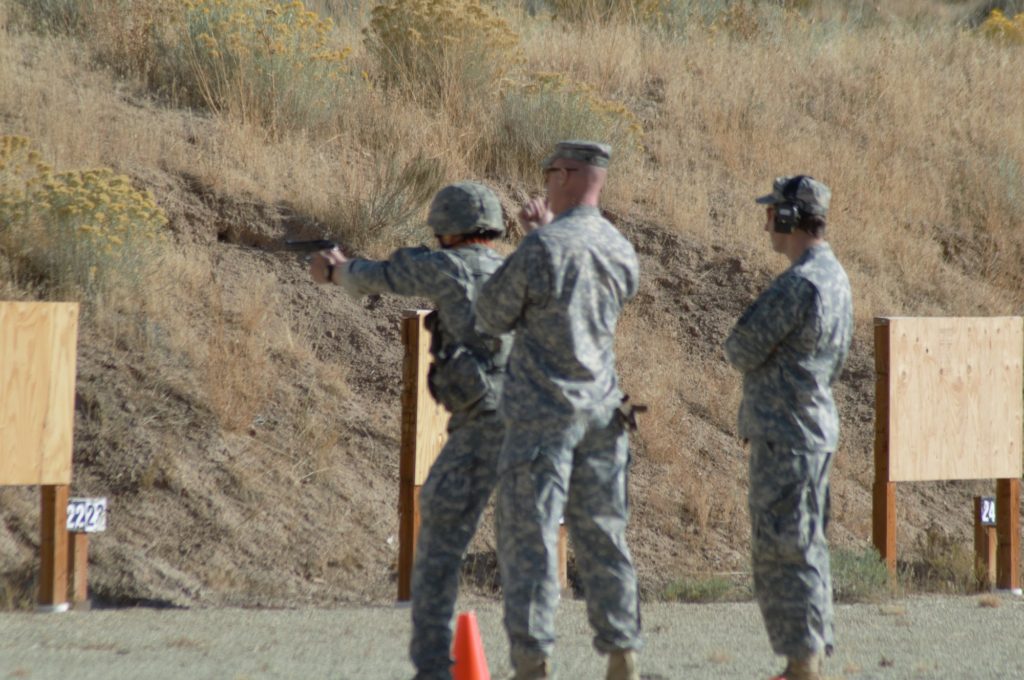
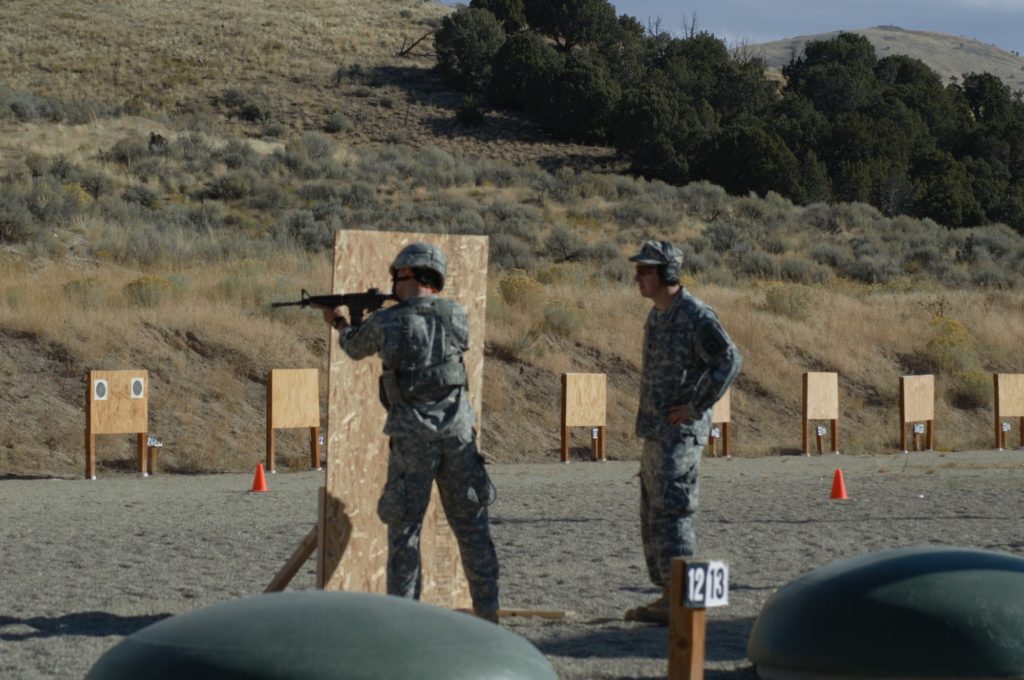
Teams also competed against the clock to clear, disassemble, reassemble and perform functions checks on both the M4 and the M249 Squad Automatic Weapon.
They also raced to demonstrate proficiency in maintaining a combat radio. The goal was to complete all tasks in the minimum time.
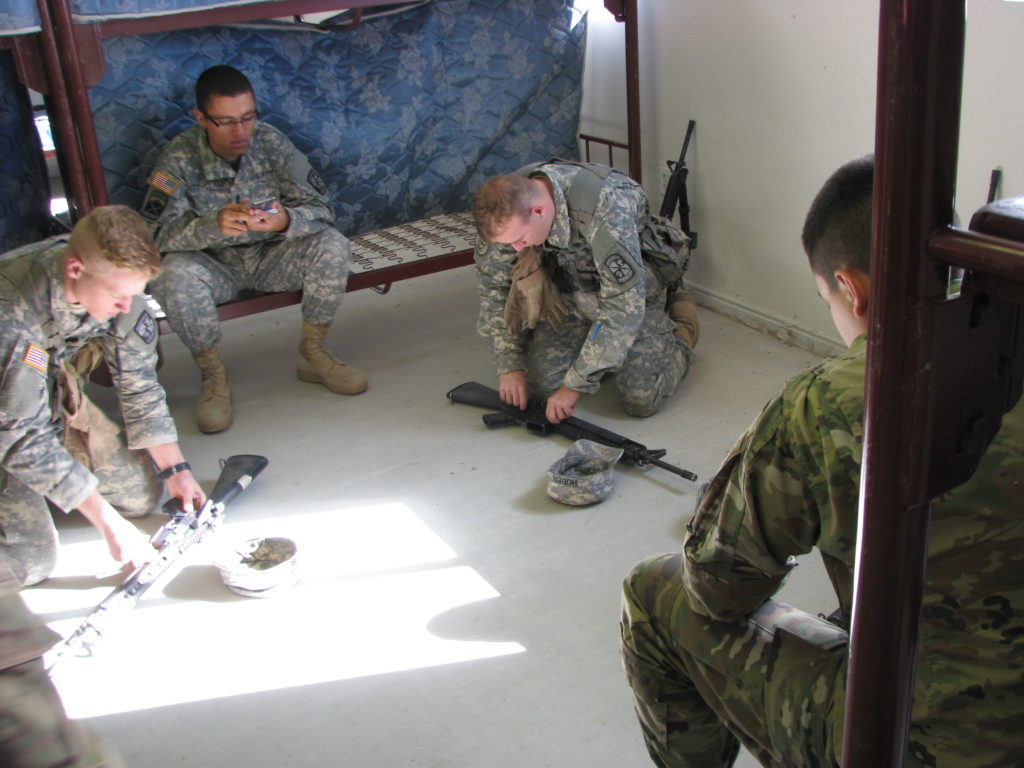
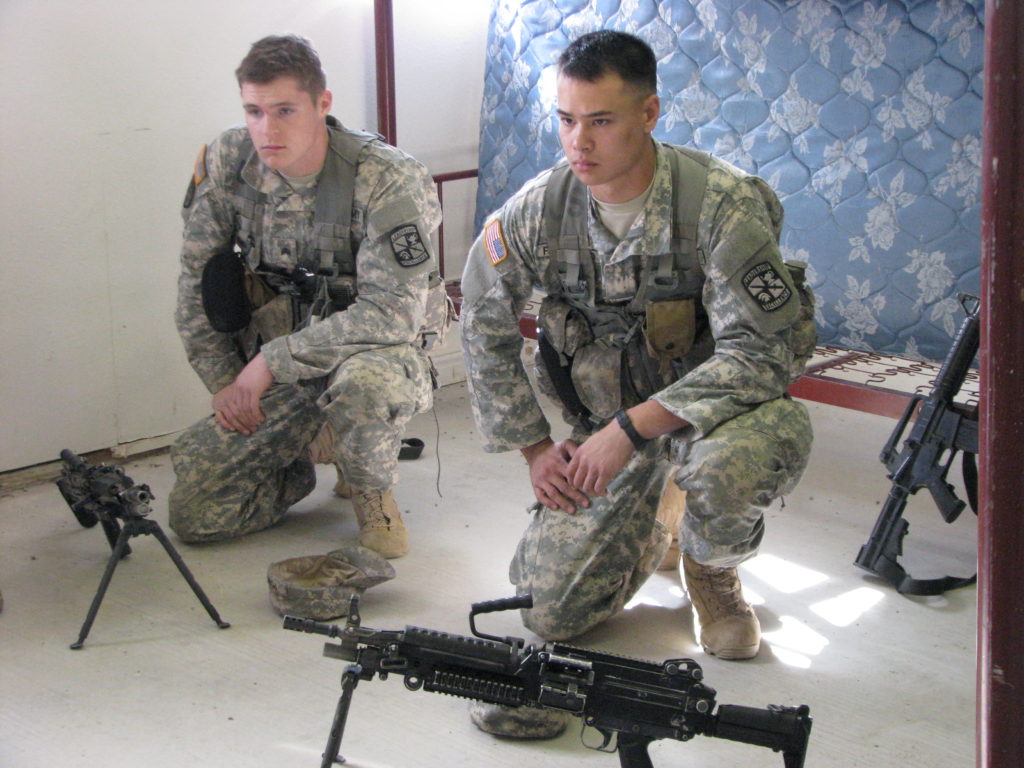
“I did Ranger Challenge to better my military skills and push my physical fitness to the limit,” WSU Cadet Jake Nalder said.
WSU Cadet Estella Rodriguez said that her favorite part of the challenge was being able to complete alongside her team.
“In the end, you’re not doing it by yourself. It’s all about the people next to you,” Rodriguez said.
Rodriguez said she would encourage people to participate in the challenge to learn skills like discipline, hard work and how to work on a team.
“The ultimate victory in this competition was knowing that WSU Ranger Challenge team did their best,” Second Lieutenant and WSU Gold Bar Recruiter Chelsey Kellum said.



















